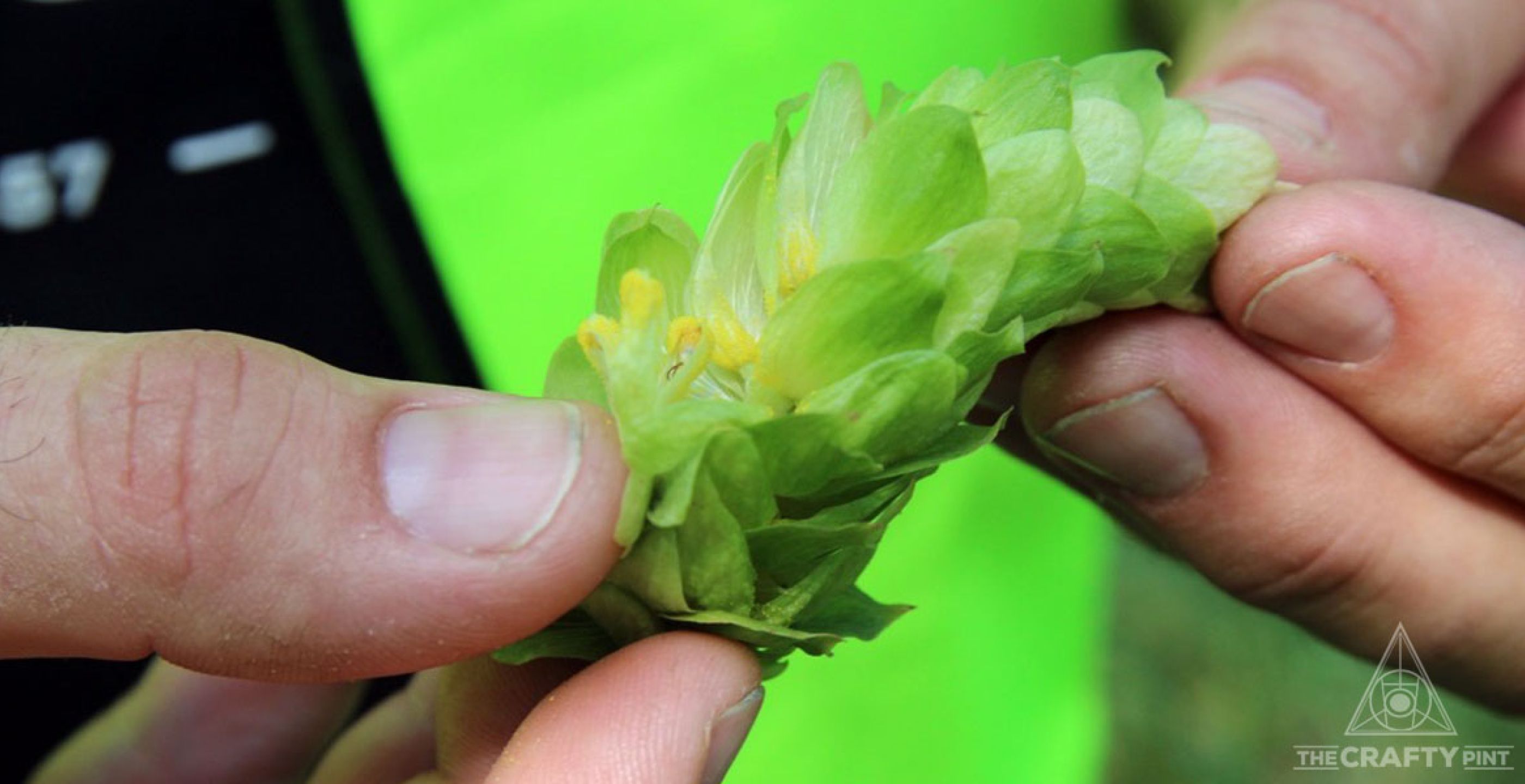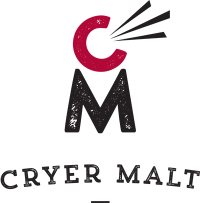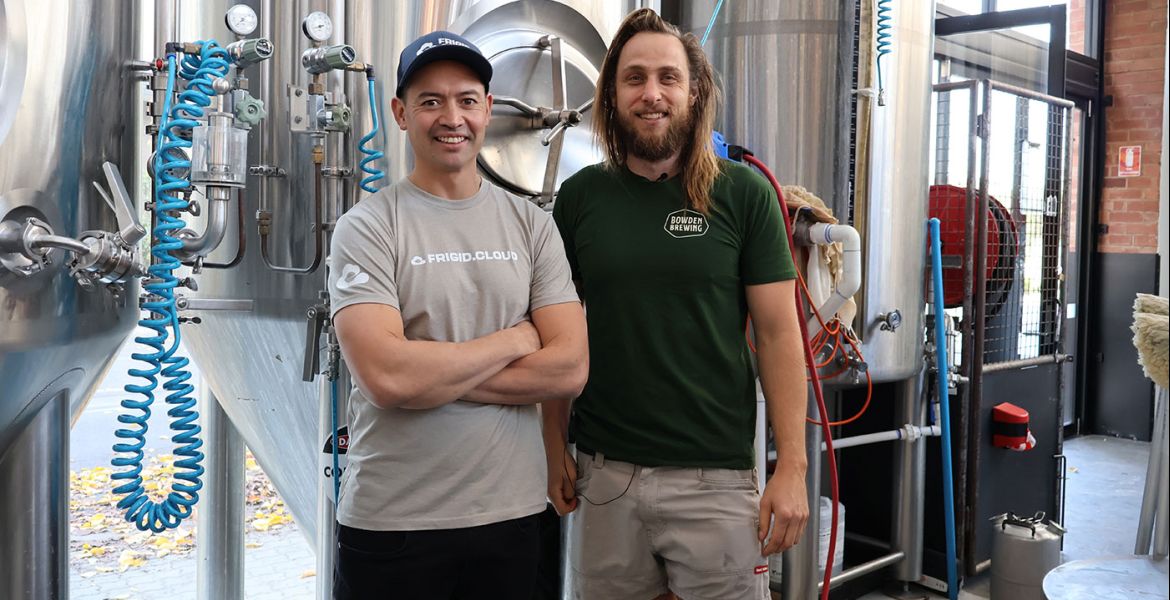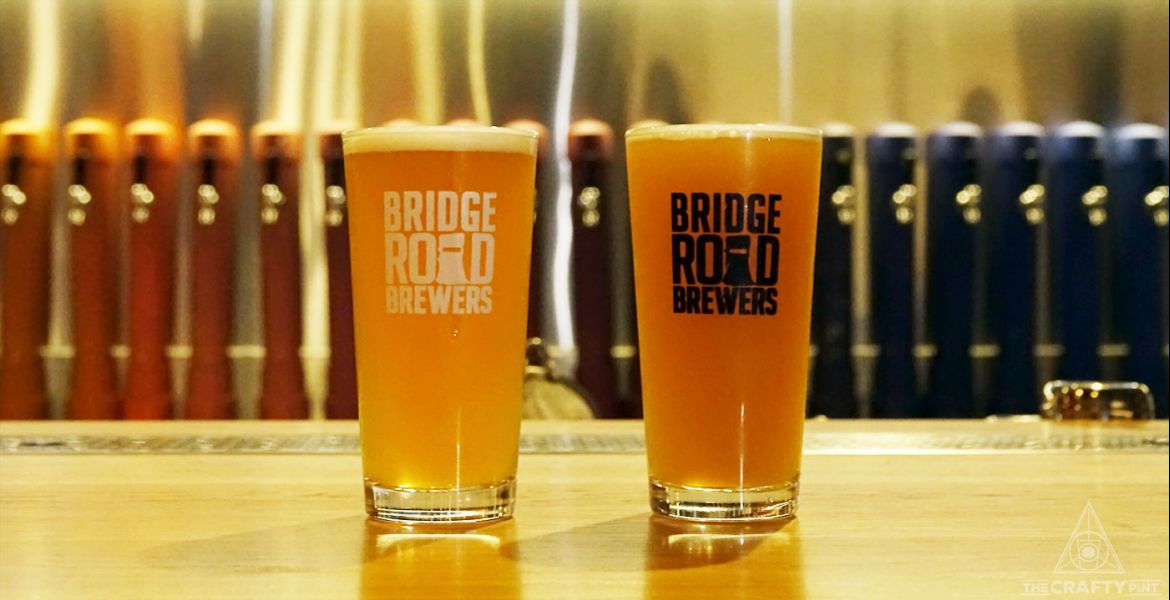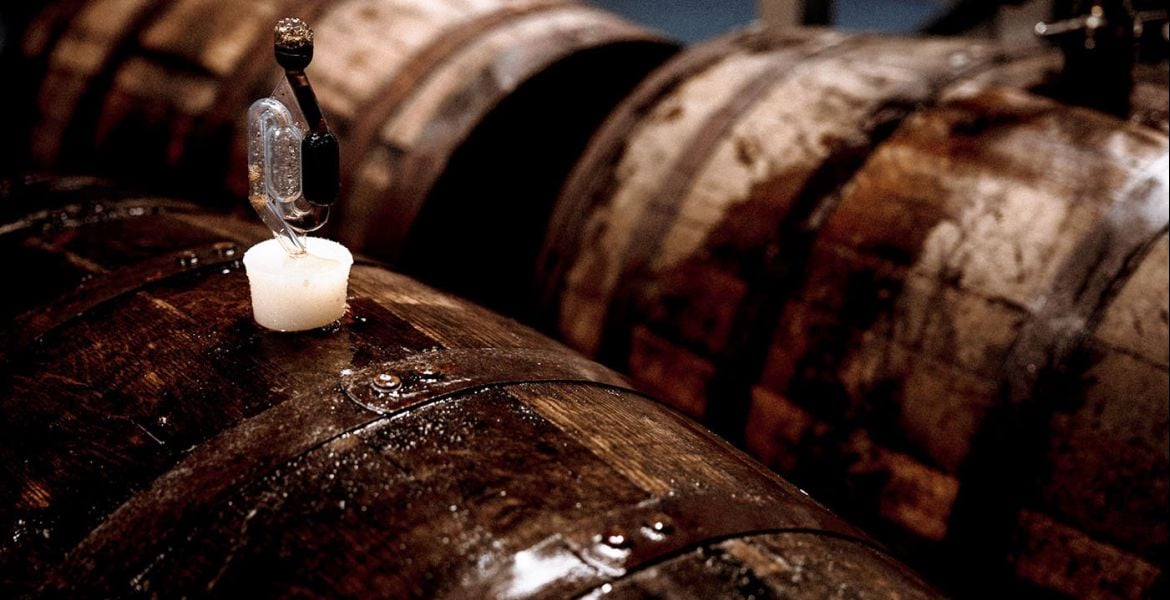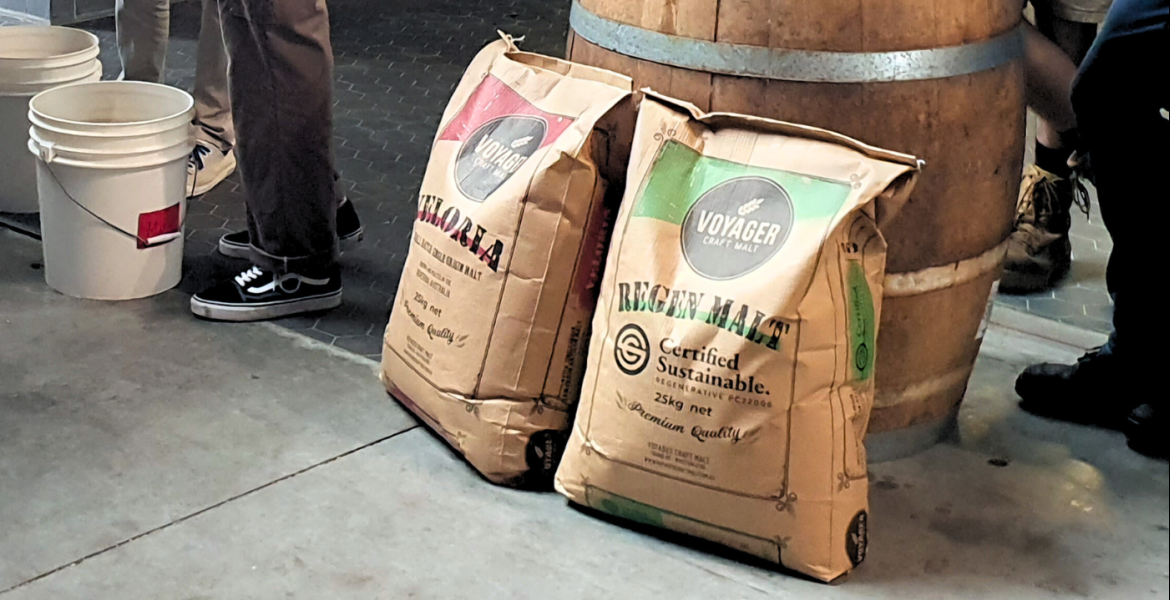Hop harvest has started across Australia, with the first fresh or wet hop beers already hitting taps and fridges. But what are they and why are more and more brewers looking to brew them every year?
Will Ziebell looks back into Australia's hop-growing past and speaks to both the brewers behind them and the people creating fresh hop-focused festivals.
It’s March 1938. Australia is in the depths of the Great Depression and leaders across the globe are hurtling the planet towards a second world war.
In Hobart, thousands are deserting the city, but it’s not the threat of war that’s pushing them out. Instead, it’s the promise of something good pulling them away: the promise of the Derwent Valley’s latest hop harvest. For them, it offers the chance to earn some extra money and also to enjoy time in the country, closer to beer’s agricultural origins.
Nearly a decade later – 1946 – and the war is over. In both Victoria and Tasmania, people are still leaving the major population centres to work on the hop harvest, with the Australian Women’s Weekly writing that year:
Every year, tired University professors, suburban housewives and their husbands, "wharfies" and their families, boys and girls, and "out-of-works" from far and near roll up their blankets, don their oldest clothes, and harvest hops.
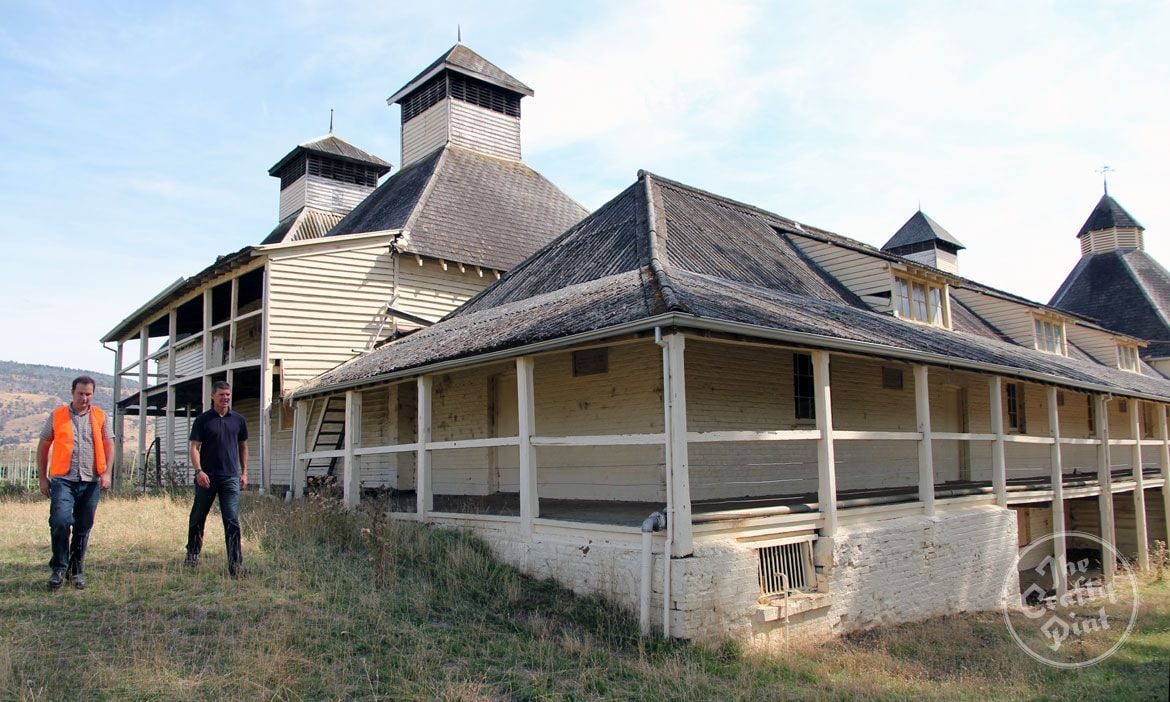
For much of beer’s history, brewing was intimately connected to the land that cultivated hops. Today, hops are available year round. When you need little more than four walls and good drainage to find a suitable spot for your brewery, the manufactured end product can become fairly removed from the agricultural ones with which it is made. Unlike wine, beer isn’t really a product of vintage, with brewers able to get their hands on perfectly good hops, malt, yeast and water at any time of the year.
But looking at this year’s roster of beers tagged as “fresh” or “wet” hop releases – beers brewed using whole hop cones that are added to the brew as soon as possible after being harvested, without being dried or processed in any way – the appeal of connecting with the land and celebrating harvest time is clearly still strong.
Both of the country’s main hop growers, Hop Products Australia and Ellerslie Hop, continue to breed new varieties of hops and actively encourage brewers to come to their farms during harvest, often sending them home with vehicles loaded with hops plucked fresh from the bines ready to be added to a brew as soon as the ute pulls into the brewery car park. Add to this a growing number of far smaller operations – often growing rare hop varieties and for whom this is an ideal opportunity to shine a spotlight on their fledgling farms – and there’s no shortage of sources for eager brewers.
With so many set to be released this year (the first are already out), it’s worth remembering how rare commercially brewed wet hop beers were in Australia until recently: Cascade’s First Harvest (now retired), Red Hill's Hop Harvest Ale and, since 2009, Bridge Road Brewers’ Harvest Ale, which was joined in 2012 by the Dark Harvest originally brewed with Mikkeller, were once the only such beers to make regular appearances.
Today's Celebrations
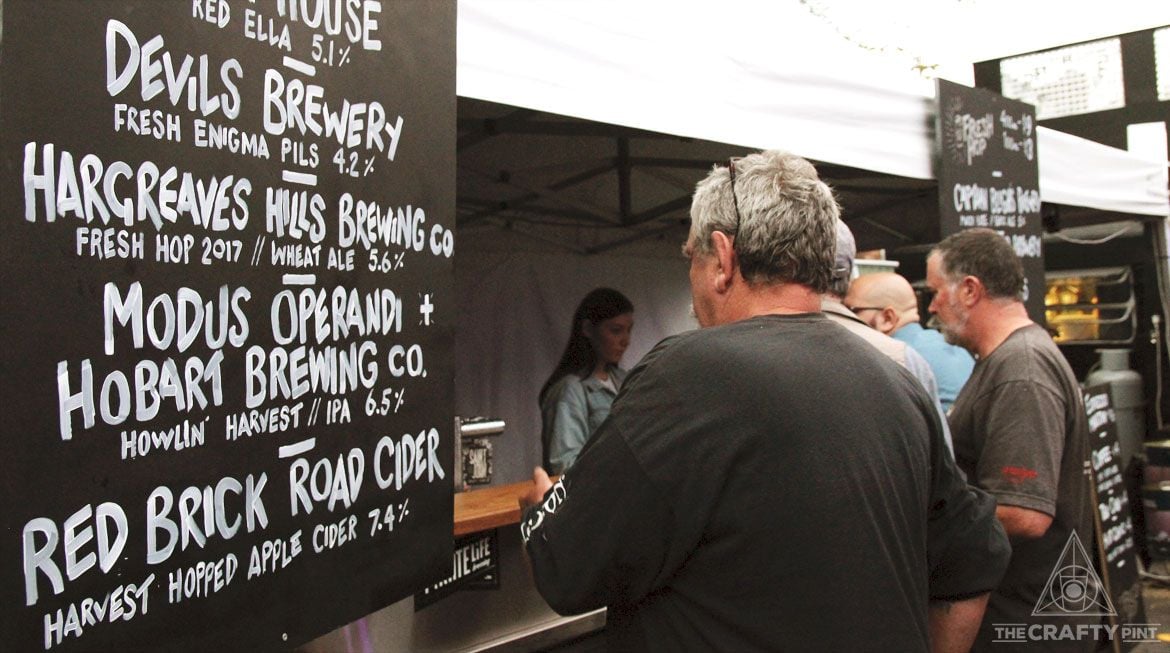
This year, there are breweries that have released beers before some hop growers have even begun to harvest their crops, while there are multiple festivals that have sprung up in celebration of these little green flowers. Fresh Hop Festival in Launceston (see above), run by the people behind the Saint John Craft Beer bar, is now in its third year, High Country Hops in Beechworth is entering its fourth, and the team at Frenchies is bringing a similar concept to Sydneysiders with its Fresh Harvest Festival.
“Given the fact so many hops get grown in Tasmania, it’s a big deal for tourism, since there’s a lot of beer tourism happening here," says Tim Jarosz, one of the owners of Saint John Craft Beer and Empress Craft Beer, whose annual festival now features 27 different wet hop beers and brings visitors from interstate yet started in rather humbler fashion.
“On the weekend we opened the back bar [of Saint John], we decided to pour fresh hopped beers only," he says. "There were a few limited release beers available to us and then we talked a few Tassie brewers into doing one of beers just for the opening of the bar.
“People really liked the fresh hopped beers, and we felt a lot of people didn’t realise brewers use pellet hops most of the year, and a lot of people didn’t even really realise where hops came from. There was a lot of education around it, so we wanted to do it again and expanded into our car space.
“We thought it was a unique concept and nobody else was doing it and we thought the harvest should be celebrated. We were in the best part of the country to do it and we have this growing craft beer scene, so we jumped on board.”
He believes there is added appeal for brewers in creating such beers, not least the need to keep venues supplied with limited release and one-off beers with stories behind them so they can secure tap points.
“Customers want that new, fresh beer that’s never been tasted before," says Tim. "I think fresh hops are a really good excuse to brew a limited release beer and more brewers are getting on board with it because people are starting to understand it more.”
This year, Sydneysiders can get a taste of fresh hop beers in a festival environment with the launch of the Fresh Harvest Festival, curated by Frenchies Bistro & Brewery at The Cannery in April.
Festival organiser Mitch Porteous says the idea sprung from Frenchies brewer Vincent de Soyres love of fresh beer and a desire "to support local farmers [and] the independent brewing community as a whole".
"Fresh hop beers are the very antithesis of the products owned by companies locking out independent brewing companies at our favourite bars and pubs," says Mitch. "Fresh hop beers are created in limited batch size and are deliberately brewed with a limited shelf life in mind. As the relevance of supporting local, independent breweries keeps on growing, it seems so does the interest in discovering and enjoying the freshest, most delicious beers."
So, what exactly are fresh or wet hop beers? What lies at the heart of their growing appeal? Are they here to stay? We spoke to a few brewers with intimate knowledge of such beers to find out more.
The Fresh Hop Brewers
We spoke to a trio of brewers with varying degrees of experience working with wet hops:
- Ben Kraus – founder of Bridge Road Brewers, who is closing in on ten years of fresh hop releases and whose brewery hosts the annual High Country Hops festival.
- Scott Overdorf – head brewer and co-owner of Hobart Brewing Co, located less than an hour’s drive from one of the country’s major hop farms: HPA’s Bushy Park. He brewed with fresh hops in his prior role at Moo Brew and his past entries to the Fresh Hop Festival, including a collaboration with Modus Operandi, have rated highly with attendees.
- Joel Nash – head brewer at Innate Brewers, who has just brewed his first fresh hop beer after sourcing them himself from local growers Preston Valley Hops.
What’s the appeal of using fresh hops?
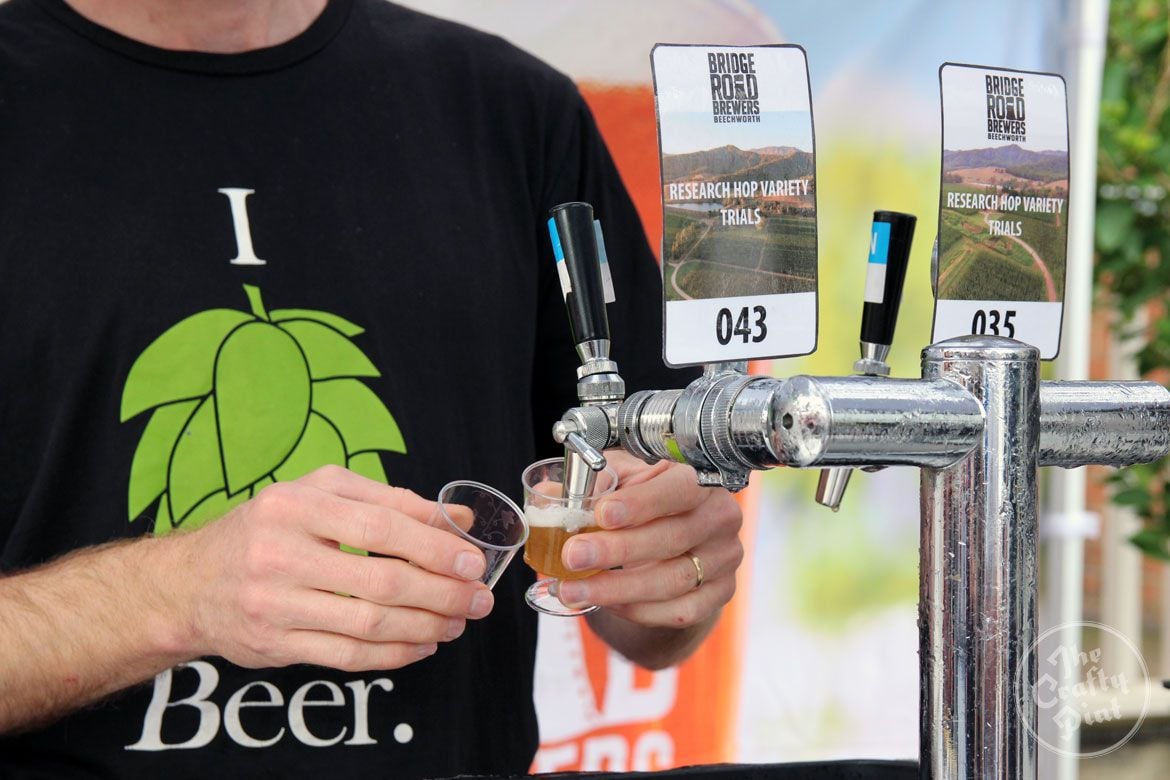
Ben Kraus: "For us it’s a really exciting time of the year. We’re generally not really a vintage based industry like winemaking is. But hops really is where it’s at for craft beer; there’s plenty more story to tell but when you have to drill down on the one thing it would be hops that really make craft beer its own."
He says telling such stories – and basing a festival around them – can help bring an audience to regional breweries too.
“City breweries have such an audience at hand. Even though our Beechworth brewery can be busy, we only have three and half thousand people in our town.
“I think it’s nice to be able to say we have this close relationship with the hop growers and show our region and our story. We can make the most of one of the small competitive advantages we have being regional.”
As for the beers themselves, Ben says they “should still be singing those really nice, fresh aromatic flavours and hopefully you are picking up on some softer volatiles which might disappear in processing.”
Scott Overdorf: “Being able to brew with fresh hops represents the harvest of one of our favourite – and one of many brewers' – favourite ingredients in hops. It’s that once a year chance to use hops in their purest form, right off the bine.
“Being here in Hobart and having the hop fields in Bushy Park, which is a little over half an hour drive, we get to go out the day before and walk through the fields, see the variety we get to be brewing with and then they are picked right in front of us.
“We get to drive home with them and then, generally we brew the next day – they get picked and we brew within 24 hours.”
Joel Nash: “It’s about making things for the season and to get people to try new things. There’s an interest in wet hops from the public and I wanted to give it a go. [So, ours] is a hark back to what beer used to be and I tried to make something more old school [like an English bitter], which we don’t normally do.
“Tasting the beer now, I wonder if people will question if it delivers on the hops. But we didn’t cheat, we used fresh hops – ten kilograms of them – that came down the night before, but it’s still a subtle beer. But that’s kind of proven to me that it’s very much about the romance and less about the results.”
What are the biggest challenges?
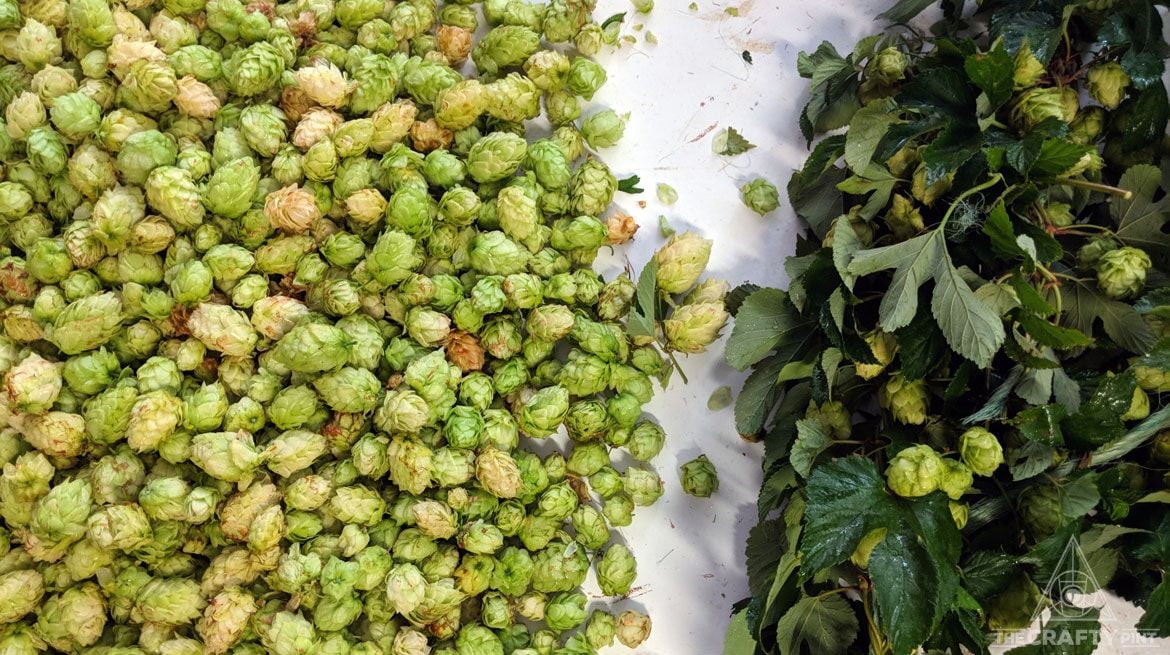
BK: “We never really know what is going to happen – we know the process but it’s still hard for the brewers. It might all sound exciting, but they are longer brew days.
“In terms of how we make it, it’s not the easiest thing to do and it took us quite some time to learn the methodology. The information wasn’t as available in the past as it is now. There was some hit and miss. I think the first year we did it, it was pretty ordinary and it’s the only year we’ve supplemented with pellet hops because we just didn’t get the results we needed.
“We’ve been using experimental varieties, so we often we have no real idea of their characteristics. Our experience is that we need to use the most aromatic hops in wet hop beers.
“We have also been pushing boundaries every year by trying to make them bigger and more aromatic and really trying to lead the market in what we do. You can really underdo it; you can get it too low on those notes you’re after and then you have no option but to add [dry] hops.”
SO: “You don’t have any of the analytics done by the labs in the hop fields, so you don’t know the alpha acids or oils content [the key active compounds in hops that predominantly contribute bitterness, flavour and aroma]. I tend to liken brewing to cooking and it’s kind of like the difference between using dry herbs and fresh herbs. So the timing of using each is different: dried herbs are used during the whole cooking while fresh often get used at the end. And, generally, you’d use more of the fresh than the dry.
“I think the biggest challenge is finding that balance to use, and how you calculate what you are going to get in return. Because it’s only once a year that you get the opportunity to brew with fresh hops there’s a long learning curve.
“There’s a hundred ways to skin a cat and there’s a hundred ways to brew a fresh hop beer. It’s just about honing down your own process and building on what works.”
JN: “I know this brewery quite well, but I didn’t over analyse too much. We don’t have any stats on the hops here – we don’t even know what the alpha acids were. So I was happy to just use ten kilograms in the whirlpool and the beer is what it is.
“[One concern is] I think, when people see my beer is a wet hopped beer, they’ll assume it’s a hop bomb but it’s not and that’s just the reality. I love subtle beer, but I don’t know if it’s what people want.
“It is a once a year thing, that’s only there during harvest, so it is a chance to try something different. I hope the punters get cluey that it is about showcasing fresh hops rather than making the best hoppy beer. We’ve got to make sure drinkers know that it’s an expression of [fresh Cascade and Nugget] and see whether you like it or not.”
Wet hopped beers have surged in popularity in recent years: how do you account for this rise?
BK: "I think HPA have really kicked it along in the past few years. HPA have been marketing it more heavily to breweries and marketing it to breweries, which has been good because it builds more awareness of the hops and where they are grown.”
SO: “I think the spread says a lot about the growers themselves. It does make the harvest more difficult [for them], but that willingness to encourage brewers to brew with fresh hops has made it more popular.
"If you are a brewer, then you definitely want to give it a go because there are so many unknowns. If you are brewing one or two beers that are your top sellers, week in and week out, then it’s definitely that opportunity to do something different and play. You don’t always get what you are looking for but it balances a lot of different skills as a brewer.
“I think it’s good for the consumer too because there’s this recognition as these are harvest brews that take us away from the businesses of our everyday lives and slows us down a bit.”
JN: “There’s a couple of things. The industry has definitely gone towards single batch releases being really important in a brewery’s portfolio – a lot more than it used to be. You used to have a single batch release once every couple of months from a brewery and now you might have a couple of new beers coming out each month. I think it’s just about clamouring for attention, and I mean that in a good way – you’ve got to try and stand out in the crowd.
“But, also, the whole wet hop thing is also about farm to table and supporting your local producers, which is also happening in food.”
The first of the hop-focused festivals to roll around is High Country Hops on March 24 and 25. Crafty Cabal members can secure 80 percent discounts on tickets for tours and experimental hop tastings.
Fresh Hop Festival returns to Launceston from April 20 to 22; look out for some ticket giveaways via The Crafty Cabal and Crafty Pint socials and Friday newsletter.
And the Fresh Harvest Beer Festival kicks off on April 21.
You can read about the experience of working the hop harvest in our Day In The Life series or gain an insight into the workings of HPA's Rostrevor Hop Gardens here.



